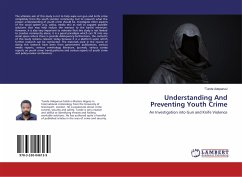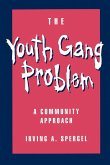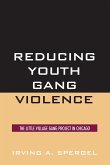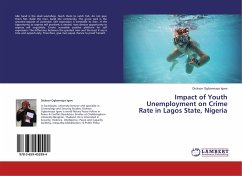Throughout the book, the core issues of youth violence in the 1990s are examined with an unprecedented degree of analytic rigour. Zimring also offers an appropriate set of responses to youth violence that are consistent with a positive future for the juvenile court and for America's children. Timely and authoritative, American Youth Violence gives students, scholars, and policy makers a much-needed tool with which to fashion a constructive response to one of the nation's most disturbing social ills.
Zimring offers the definitive examination of adolescent violence in the United States both as a social phenomenon and a policy problem. His book covers the range of youth violence issues in the 1990s, from crime statistics to demographic projections to new legislation. The result is a thorough debunking of Congressional predictions of "a coming storm of juvenile violence" and the half-baked policy proposals that accompany such warnings.
Hinweis: Dieser Artikel kann nur an eine deutsche Lieferadresse ausgeliefert werden.
Zimring offers the definitive examination of adolescent violence in the United States both as a social phenomenon and a policy problem. His book covers the range of youth violence issues in the 1990s, from crime statistics to demographic projections to new legislation. The result is a thorough debunking of Congressional predictions of "a coming storm of juvenile violence" and the half-baked policy proposals that accompany such warnings.
Hinweis: Dieser Artikel kann nur an eine deutsche Lieferadresse ausgeliefert werden.








